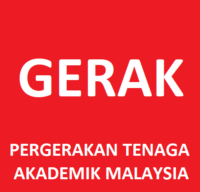24 Feb 2023 – “ChatGPT is a language model created by OpenAI, designed to answer a wide range of questions on a variety of topics. It has been trained on a vast corpus of text data and is capable of generating natural language responses to a wide range of queries.” (Response from ChatGPT about what it is).
GERAK has watched with interest and some fascination the introduction of ChatGPT by OpenAI.
Equally fascinating are the responses to the innovation, ranging from doomsday pronouncements to unbridled enthusiasm that see the innovation as a game-changer in many fields of human endeavour. Particularly noteworthy are the reactions from higher education institutions and educators.
Here, too, the responses range from the extreme to the curious and from the positive to the negative.
The doomsday criers see in the innovation the beginning of the end of universities. Educators are concerned that it will undermine academic integrity, encourage academic cheating in the form of plagiarism, and promote laziness in students and even teachers.
Less strident opponents are concerned with students becoming over-reliant on technology leading to diminished critical thinking and problem-solving skills.
There is also concern that students learning in isolation from others will have negative implications on the social aspects of learning, which are vital for the overall development of students in higher education.
GERAK shares many of these concerns. We fear that relying too heavily on a single source of knowledge, however large the dataset, exposes students and academics to incomplete, inaccurate, biased and misleading information.
The ChatGPT demo model that is available to anyone responds quickly to most questions, but the answers are, for the moment, synthetic and robotic. They lack the conviction of the texts one reads in books.
Also, when asked to carry out more subtle language tasks like evaluating poetry or writing it, ChatGPT’s limitations are stark.
Nonetheless, it is able to explain its limitations (“I am a large language model trained by OpenAI and I don’t have the ability to evaluate the quality of literary works or make aesthetic judgments.”) making it sound like a contrite student caught cheating.
Its efficiencies, however, will certainly improve over the years with larger datasets and improved artificial intelligence (AI). Indeed, we see the technology becoming pervasive, not only in higher education but in other areas of human endeavour.
We can add a whole host of concerns and limitations about the innovation. Suffice to say for now that the ethical and deep educational issues will not go away.
Of even greater concern is how AI-based tools will dominate knowledge production and lead students and scholars to rely only on AI sources to tap into knowledge.
There is a real risk of knowledge domination flowing from such contraptions that threaten to make us the victims of knowledge and not its creators.
Higher education must find ways to deal with these.
There is therefore an urgent need for a government high-level taskforce or committee of experts from education and technology to understand the technology and develop cross-sector policies and guidelines to meet the potential and challenges of the technology.
This is essential in light of the guidance issued by UNESCO on AI and education and the initiatives taken by Australia and the US to address this.
The higher education minister, in his resolutions for the higher education sector, has foreshadowed the development of a white paper on technology, “A New Horizon for Science, Technology, and Innovation. A Strategy for Malaysia”.
GERAK believes that the scope of that initiative can be expanded to include innovations like ChatGPT or, better still, to develop a separate paper that will focus only on AI-generated tools.
GERAK is willing to participate in such an initiative in support of the government’s desire to enhance the quality of genuine education in Malaysia.

